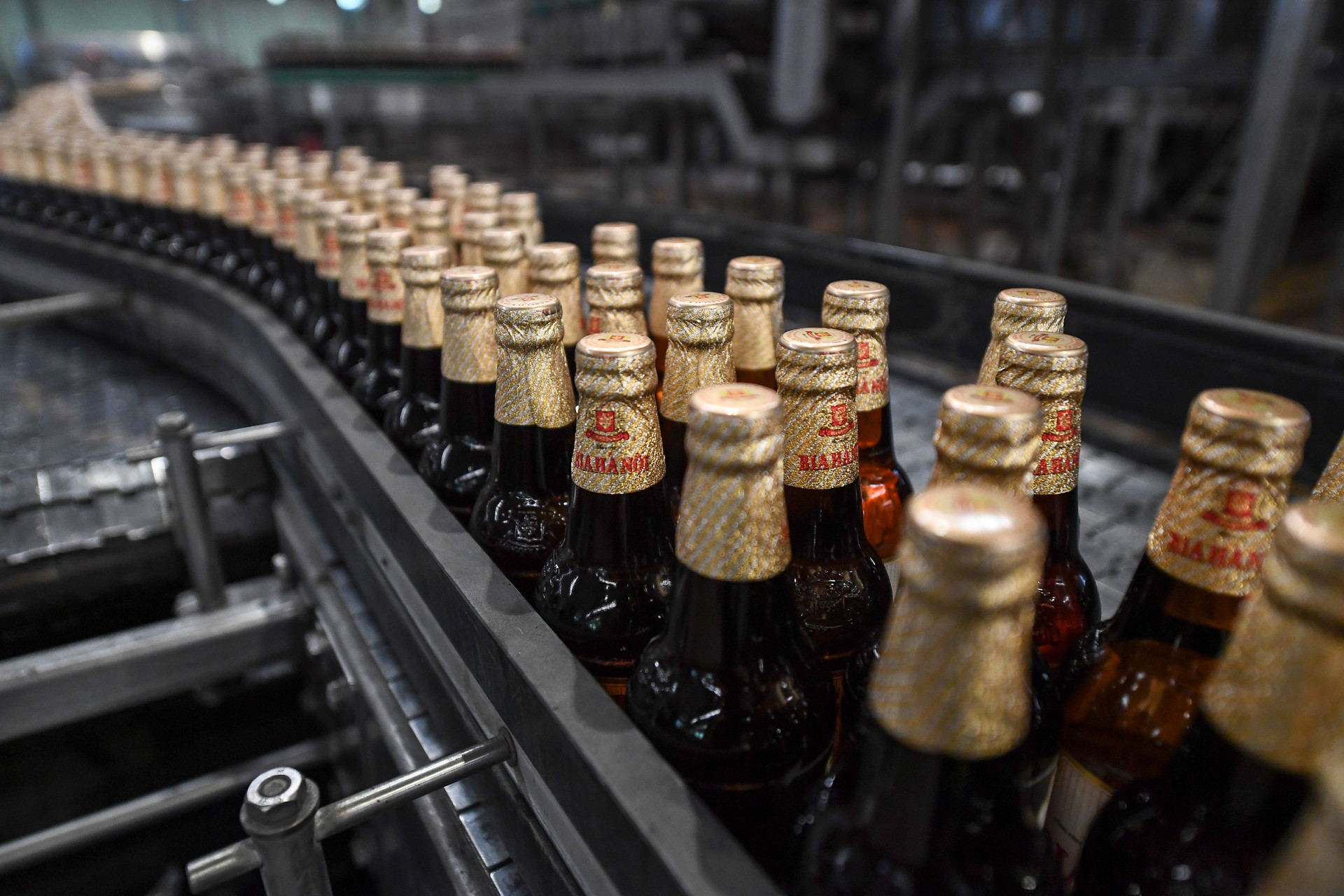
The Vietnam Chamber of Commerce and Industry (VCCI) on March 18 held a seminar discussing the SCT (luxury tax) draft law before its submission to the National Assembly for approval in the upcoming ninth session.
High taxes may drive users to illegal products
Can Van Luc, Chief Economist at BIDV (the Bank for Investment and Development of Vietnam), warned that businesses will continue facing challenges from trade-tech wars, rising input and logistics costs, uneven and unstable order recovery, and more.
Thus, rapid and steep tax hikes would disproportionately reduce benefits for industries and the economy, resulting in lower overall consumer demand and investment.
“A sharp and fast increase in SCT on alcoholic beverages could undermine long-term budget contributions, creating a ‘double difficulty’ scenario for businesses, workers, and related sectors like packaging, transport, tourism, and dining,” Luc observed.
He proposed a new approach that he believes is ‘optimal’: delaying the SCT implementation to January 1, 2028, and staggering tax increases to give businesses time to prepare.
Vo Tri Thanh, Director of the Institute for Brand and Competitiveness Strategy Research, stressed that the new law must observe the SCT’s goals, particularly in shaping consumer behavior and health.
He argued that for beer and liquor, consumption won’t drop as users may tend to use illegal or smuggled products instead. Meanwhile, Decrees 100 and 168 have already curbed the usage of these products.
“I agree with businesses and associations advocating for a tax delay. We need thorough research on taxation effectiveness, fairness, and impact on budget, consumption, and labor,” Thanh urged.
Nguyen Thi Cuc, Chair of the Vietnam Tax Consultants’ Association (VTCA), said choosing Option 2 as suggested by the law compilation board, i.e rapid tax hikes, will continue to cause difficulties for manufacturing, trade, and food service sectors.
VTCA recommended a reasonable tax increase timeline to sustain production, jobs, and market stability.
Delaying tax hikes to support businesses
Many participants at the seminar proposed a taxation delay to ease the burden on businesses.
Nguyen Van Viet, Chair of the Vietnam Beer-Alcohol-Beverage Association (VBA), noted that in late 2024 and early 2025, especially around Tet, the beverage industry saw a demand slump as people tightened spending.
He argued that rapid tax hikes would hinder the consumption momentum needed for growth targets. VBA proposed delaying the tax increase on beer and liquor to 2028, and following Option 1’s (gradual tax increase) to aid business development.
Tran Ngoc Anh from Heineken Vietnam called for policies to avoid a “double trap”: export struggles paired with a domestic market failing to grow as hoped.
She highlighted Nielsen data showing a sharp 71 percent surge in unofficial beer output in 2024, which accounted for 5.8 percent of the national market share and 8 percent in the Mekong Delta. This not only cuts state revenue but also poses health risks.
“The drafting committee should consider a reasonable tax timeline to minimize negative impacts on government, businesses, and consumer goals, sustaining economic growth momentum. We propose the first tax hike in 2027 with Option 1 rates,” Anh said.
Nguyen Hoang Giang from SABECO suggested delaying the SCT implementation to 2028 instead of 2026, easing business burdens, avoiding compounded challenges, and fostering economic growth and revenue.
Meanwhile, Huynh Thi Thanh Truc from EUROCHAM urged the government to adopt a reasonable tax timeline to have harmonious revenue, business, and public health goals.
The draft of the amended SCT Law offers two options for taxing beer and liquor:
Option 1: Starting in 2026, tax increases from 65 percent to 70 percent, then raise by 5 percent annually until reaching 90 percent in 2030.
Option 2: Starting in 2026, tax increases from 65 percent to 80 percent, then raise by 5 percent annually until hitting 100 percent in 2030.
The draft SCT law is catching the attention of the public as it contains tax hikes for many products. Besides alcoholic beverages, people also are concerned about the tax on gasoline and air conditioners.
Many economists have proposed eliminating the SCT imposed on gasoline and air conditioners because these are both essential goods, not ‘luxurious goods’ that need a luxury tax.
Hanh Nguyen